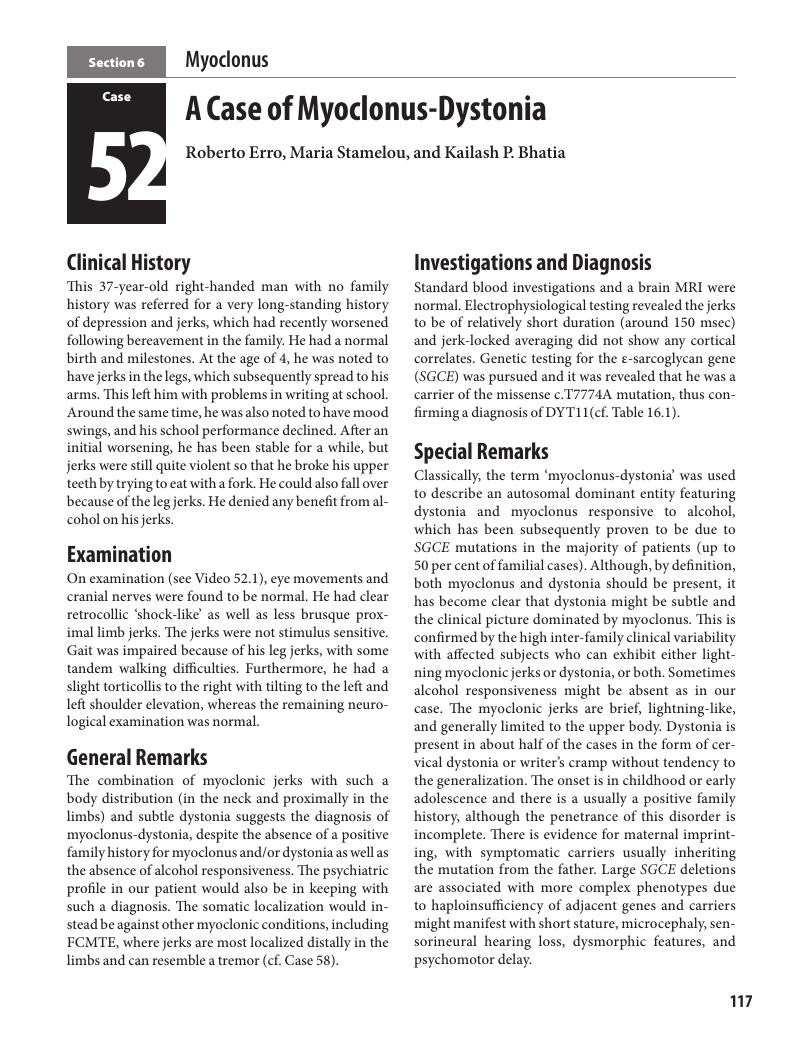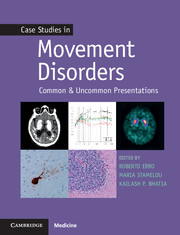Book contents
- Case Studies in Movement Disorders
- Case Studies in Movement Disorders
- Copyright page
- Contents
- Video Captions
- Contributors
- Preface
- Previously Published Cases
- Abbreviations
- Section 1 Parkinsonism
- Section 2 Dystonia
- Section 3 Tics
- Section 4 Chorea
- Section 5 Tremor
- Section 6 Myoclonus
- Section 7 Ataxia
- Index
- Plate section
- References
Section 6 - Myoclonus
Published online by Cambridge University Press: 04 July 2017
- Case Studies in Movement Disorders
- Case Studies in Movement Disorders
- Copyright page
- Contents
- Video Captions
- Contributors
- Preface
- Previously Published Cases
- Abbreviations
- Section 1 Parkinsonism
- Section 2 Dystonia
- Section 3 Tics
- Section 4 Chorea
- Section 5 Tremor
- Section 6 Myoclonus
- Section 7 Ataxia
- Index
- Plate section
- References
Summary

- Type
- Chapter
- Information
- Case Studies in Movement DisordersCommon and Uncommon Presentations, pp. 116 - 133Publisher: Cambridge University PressPrint publication year: 2017



